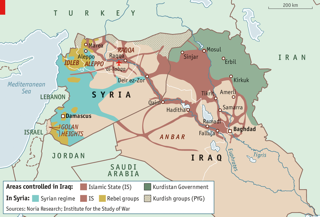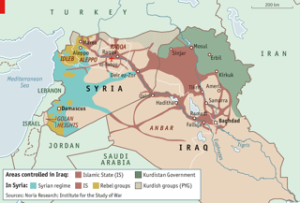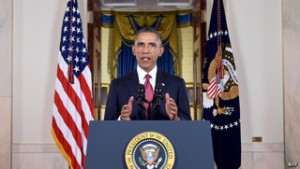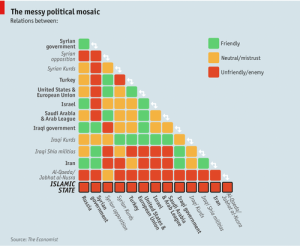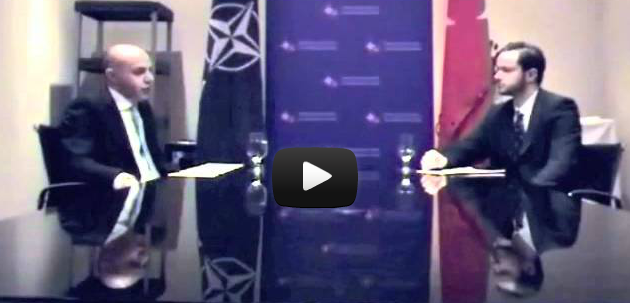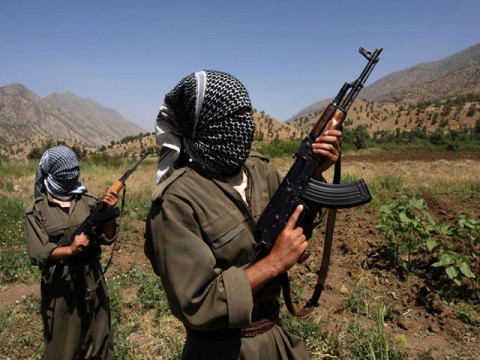For over a year, the Islamic State, formally known as the Islamic State of Iraq and the Levant (ISIL), and the Islamic State of Iraq and Syria (ISIS), has made large gains in territory with significant support from westerners travelling overseas to join the extremist group.
During this time, many western leaders watched in silence as the Islamic State rained terror. However, the recent beheadings of two American and one British hostage has now instilled fear providing western leaders, especially the United States, with the public support it needed to launch an offensive attack against the group.
In the past few decades, the United States took a leadership role in the fight for peace and democracy. However, since Obama’s debut as President, the world has lacked this leadership due his reluctance to drag America into another combat mission.
On September 10, 2014, Obama spoke to the American public on his strategy to deal with the threat, describing the Islamic State as; “a cancer, and the gravest terrorist threat since al Qaeda.” The United States will act as the leader of a coalition against the Islamic State with thirty countries already pledging to help Iraq fight Islamic State militants “by all means necessary“. This coalition however, can only work if America can muster support from Muslim countries in the region such as Iran, Saudi Arabia, Turkey and Qatar. Secretary of State John Kerry has just finished a Middle Eastern tour to show the world that the United States will only act with regional interests in mind.
Obama’s plan to destroy the Islamic State militarily, financially and ideologically. America will help the Kurdish and Iraqi forces with intelligence and training. A total of 475 US military personnel will be deployed to Iraq, however, Obama has made it clear that they will not be engaging in a combat role. Obama has also made calls for Congress to back a plan to train and arm some of the moderate Syrian rebel factions fighting against the Islamic State militants.
The US will start with an air campaign against the Islamic State in Iraq and when necessary, in Syria. Obama’s coalition will act with or without UN approval, instead gaining legitimacy by the Arab and Muslim backing that Kerry is working on.
In response to Obama’s announcement, Russian President Vladimir Putin warned that striking against targets in Syria without a UN Security Council mandate would be a ‘gross violation of international law’. Putin’s opinion however, is not likely to have much impact due to the current situation in the Ukraine, and the accusations of Russia’s involvement in shooting down a passenger airline last July, resulting in the death of 298 innocent people.
There are still many aspects of Obama’s plan that need to be further examined. Success in targeting IS militants will depend on Syrian President Bashar Al-Assad’s counter attack, as Syrian air defences could shoot down a coalition aircraft.
Furthermore, establishing diplomatic relations in the region will be particularly difficult with the loss of American hegemony in the Middle East on top of on-going conflicts between Israel and the Arabs, the Turks and the Kurds and the Sunni and Shia sects. This means that the current plan to eliminate the threat from the Islamic State, even if successful, will still only solve one of many problems in the region. In order to gain complete peace in the region, a more comprehensive policy must be put in place.
Once again, the United States and allies are getting involved, this time unwillingly in an armed conflict in Iraq. The west may have reacted late, but there is still time. The tide is already turning with previous strikes having had positive effects against Islamic State targets. With wider support from regional players, and NATO countries, and a plan in place, we may see a positive result early on.

